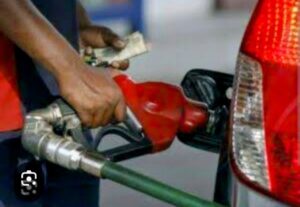

,,,,, Transport Fares Remain High
By Dada Ahmed, in Lokoja.

(C) Google.
Life may soon become easier for commuters in Lokoja, the Kogi State capital, and other parts of the state as the price of petrol begins to drop, raising hopes of eventual respite from high transport costs that have plagued residents for months.
The Reporters’ checks at key petrol stations along the Lokoja-Kabba Road on Saturday revealed a downward adjustment in pump prices. At MRS and several other outlets, petrol was being sold for between N905 and N900 per litre, a noticeable reduction from the previous price of over N1,000.
Report by Daily Post Nigeria indicates that price may drop further.
The paper quotes Independent Petroleum Marketers Association of Nigeria as saying that the price of Premium Motor Spirit may nosedive further to N800 per litre in the coming days, citing
IPMAN’s spokesperson, Chinedu Ukadike disclosure in an interview.
According to Ukadike, with partnership between petroleum marketers and Dangote Refinery, petrol prices may crash further from an average price of between N875 and 910 per litre in Lagos and Abuja.
“I see this as a little breathing space. “We’ve suffered enough from high fuel prices. If this trend continues, perhaps the cost of living will ease up a bit,”
Jabet Akinola, a National Youth Service Corps (NYSC) member posted to Lokoja.said.
Despite the declining petrol price, many commuters say transport fares remain high. In some areas, fares have even continued to climb. For instance, trips from Ganaja and Gadumo to the new market and NNPC area of Felele now cost more than they did a month ago.It costs an average commuter from Gadumo to pay N500 per to be transported to Felele instead of the previous N300.
“You would think that with petrol now below N1,000, things would improve. “But transporters are still charging us more than they did last year. It’s frustrating.” Sani Aliyu, a civil servant”,lamented.
Transport operators, however, point to another persistent challenge: the soaring cost of motor spare parts. For them, petrol is only a fraction of the cost of keeping vehicles on the road.
“We are not happy charging our passengers more,” “But the cost of maintaining our tricycles is unbearable. A tyre that cost N15,000 last year now goes for N35,000,”Idris Aliyu, a Keke NAPEP operator at Ganaja Junction reacted.
That sentiment was echoed by commercial bus drivers and commercial motorcycle riders. At the NURTW motor park on Kabba Road, Lokoja,Oricha Mohammed, a driver on the Lokoja–Okone route, explained how escalating maintenance costs were eroding his profits. “Most of what i earn ends up at the mechanic’s or spare parts shop. Brake pads, tyres, and other components now cost nearly double what they used to cost,” Idris Aliyu, a Keke NAPEP operator at Ganaja Junction disclosed.
In separate interviews, transporters warned that without intervention, many of them might be forced to abandon the business. “Some of us are still on the road because we have no other option,” “Otherwise, we would have quit long ago,” another Keke operator at Nataco Junction told our correspondent.
Transport stakeholders are calling on the government to adopt a holistic approach to resolving the challenge. They urged authorities to intervene in regulating spare part prices, provide subsidies for public transport operators, and support them through cooperatives or financing schemes to keep their businesses afloat.
While the fall in petrol prices is a step in the right direction, many observers agree that unless the ripple effect reaches commuters through lower fares, the hardship in the sector may persist.


